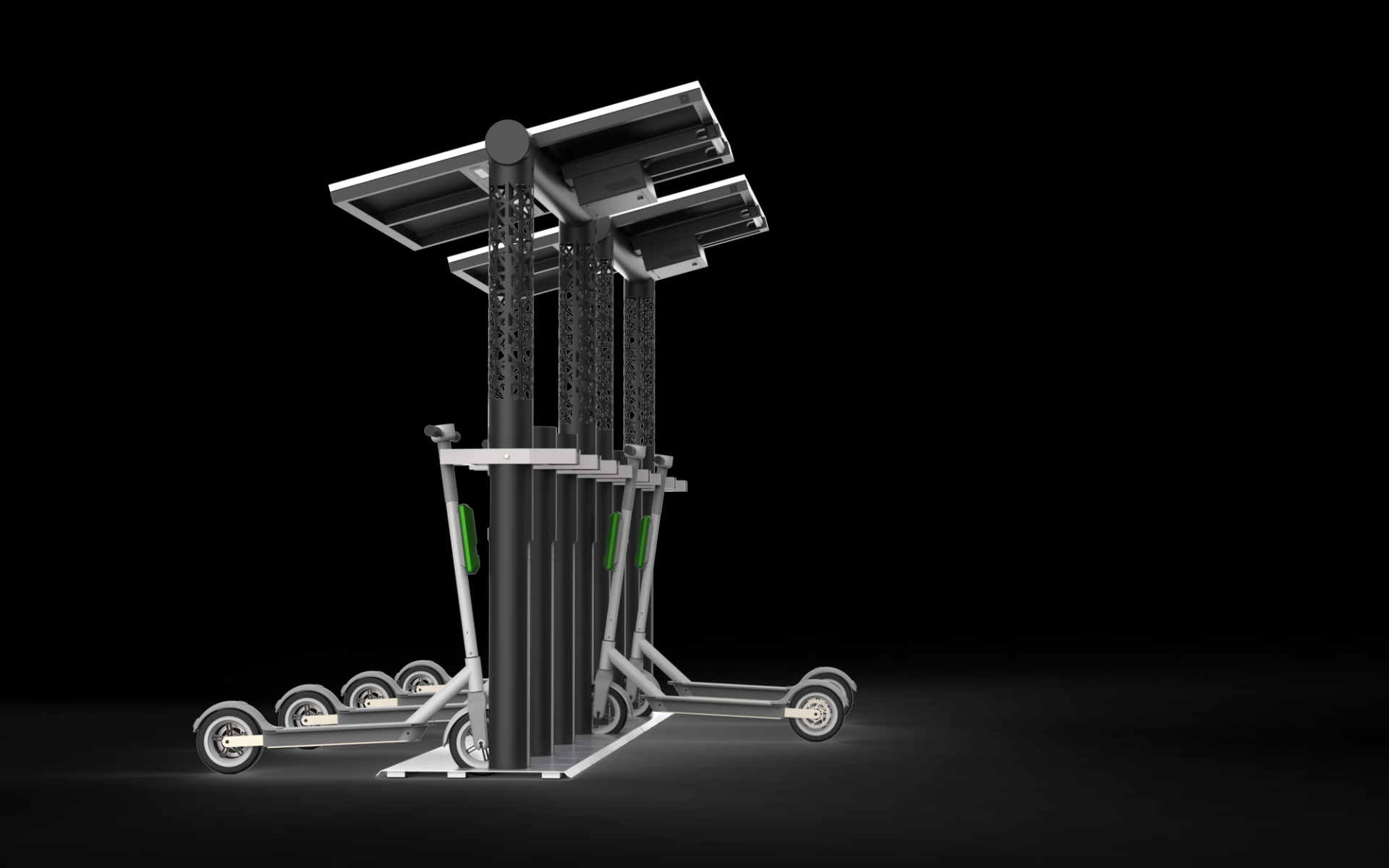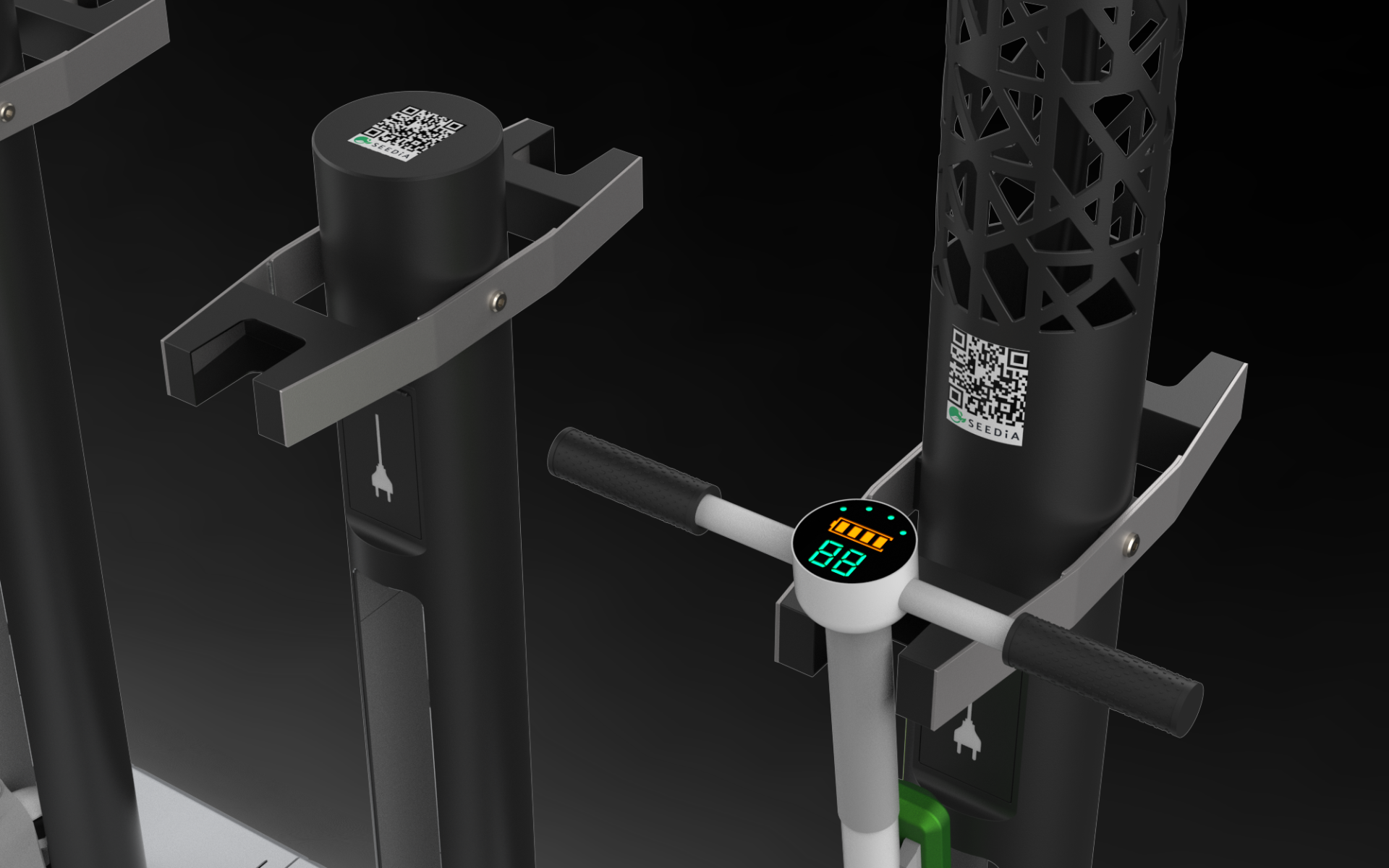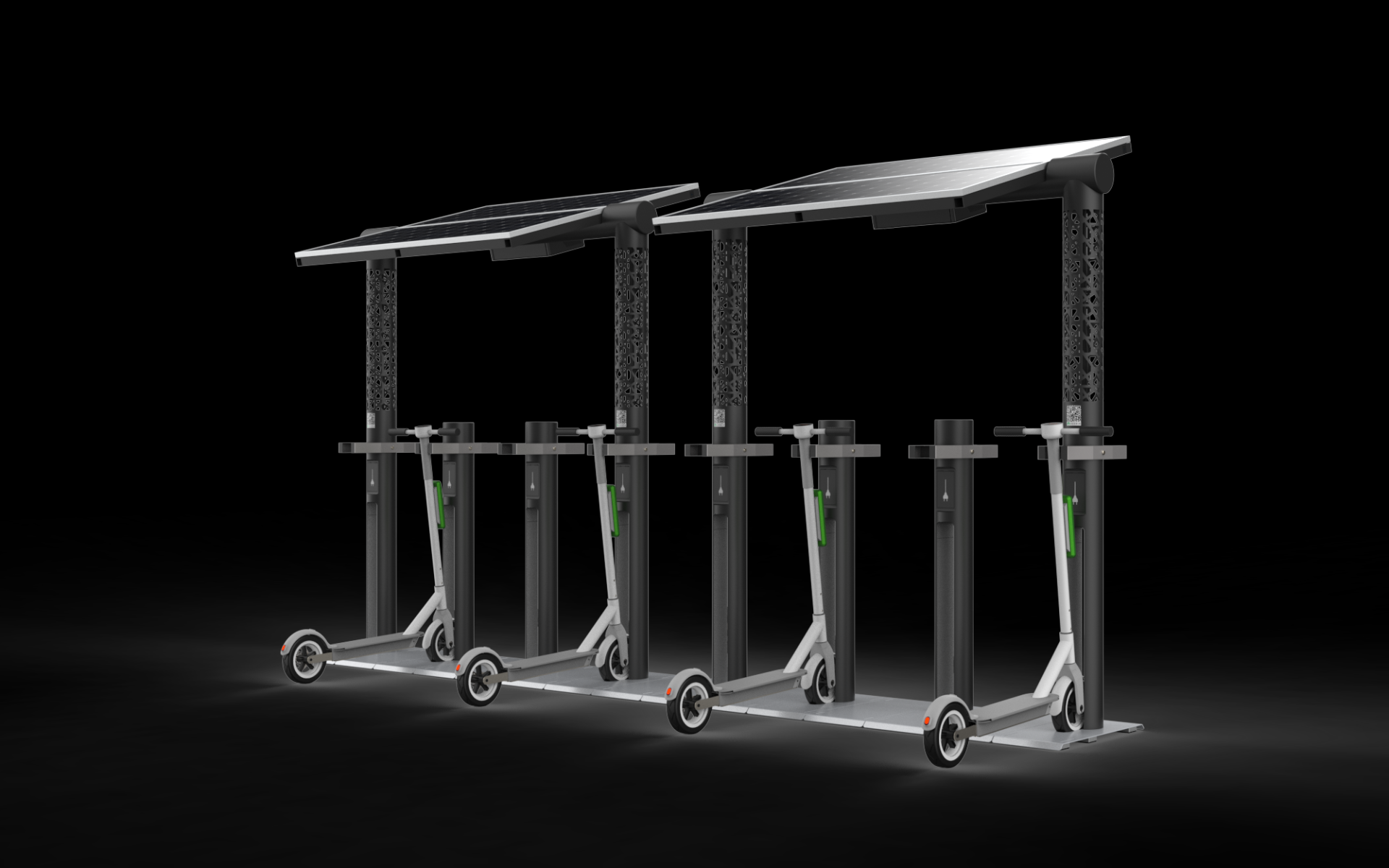jCharge
Basic information
Project Title
Full project title
Category
Project Description
jCharge is a universal charging station for mobile devices and small electromobility for public spaces, tailored to different types of devices, which optimizes and reduces the cost of charging these devices by suppliers.
Project Region
EU Programme or fund
Description of the project
Summary
The rapidly growing trend of electromobility - not only in cars, but also in small electromobility - scooters, bicycles, scooters, skateboards - generates the need for access to energy in public places. Cities are increasingly reducing the presence of cars in city centers, which further reinforces this trend - more and more users are taking advantage of small electromobility and moving around cities on foot.
The growing presence of electromobility is generating a lot of litter in public spaces and a need for electricity to be widely available.
jCharge is a universal charging station for mobile devices and small electromobility for public spaces, tailored to different types of devices, which optimizes and reduces the cost of charging these devices by suppliers.
Solar powered charging shed for scooters equipped with 280 W photovoltaic panels and batteries with a total capacity of 80 Ah. The station has 4 outputs for charging electric scooters with a current of 2A (standard charging voltage for scooters)
Inside the station there are control electronics consisting of:
1. jCharge project current control board - responsible for battery charging, energy distribution and communication with the cloud
2. voltage converters - responsible for driving the DC voltage to charge the connected scooters.
Key objectives for sustainability
The project is sustainable and has a positive impact on the environment. As part of the project, documentation will be created including a diagnosis of the applicant's potential, a design strategy, and prototypes of equipment will be tested. The product of the project is designed so that it does not affect the environment, environmentally friendly materials are used, and one of the objectives of the design process is to make the product as durable as possible, resistant to damage so that the product life cycle is as long as possible. The station is made of the highest quality materials, thanks to which it is vandal resistant and protected against harmful atmospheric factors. The stations are environmentally friendly, because thanks to their design they do not contain or emit any substances, and are powered by 100% solar energy. They do not contribute to increased air emissions.
Key objectives for aesthetics and quality
The product is in line with current trends and fits into the concept of "Smart City". The position of design in jCharge's activities is significant. The company introduces design not only as an element of styling, but also bases its production and sales processes on it and implements it as a permanent part of the company's strategy. The company's product is designed on the basis of conducted market research and customer needs. jCharge has analyzed data on urban infrastructure of selected cities. In many Polish cities there are significant deficiencies in this kind of infrastructure. People like to spend time outdoors.
jCharge station has a data endpoint - Seedia Cloud, which is becoming the leading cloud solution for municipalities. From SEEDiA cloud, customers have the ability to manage products and their multimedia features from a single location. Additionally, jCharge has developed specially designed control electronics and power management algorithms so that products are able to operate globally, which differentiates the company from its competitors.
Key objectives for inclusion
Our solution addresses the problem of several stakeholder groups:
Business customers:
Municipalities and cities - nowadays cities are struggling with the problem of urban chaos, which is created among others by littering with small electromobility devices, mainly scooters. By installing a charging station, users will park their devices at the station, thus reducing urban chaos.
In cooperation with operators, who will pay for the charging process, the city will earn money from the infrastructure. At the moment, operators use city infrastructure without paying for it.
Operators- charging costs currently range from 60-80%. jCharge stations are able to reduce these costs by 50-60% due to the fact that the scooters will be parked at the station, and the process of charging the scooter will be 100% ecological, provided by solar energy. Information about the cheaper, ecological charging process and the reduction of chaos will be made available in the form of an announcement.
End user - resident / tourist:
User of micro mobility systems.- For the user, the most important thing is the wide availability of scooters, bicycles, but also the level of charge and the quality of the devices, so they can move safely around the city. With jCharge, the devices will be organized, available in city centers, and the user himself will be rewarded in the form of cashback or loyalty systems or city cards for parking the devices to the chargers.
Innovative character
Existing market solutions are characterized by a specific design and the ability to charge only a selected device - a scooter or scooter or small electromobility
By using the standard recognition of plugged-in devices developed by jCharge, the module will be one universal module with the possibility of application in a wide range of products and the ability to charge different devices.
In addition, jCharge has the ability to communicate via sim card with a remote server so that, using a mobile application, it will be able to control the charging current, which will be used for marketing campaigns, paid modules and promotions.
Remote panel jCharge is also the only solution that provides for the use of data on the number of devices and users for analysis and optimization of public spaces.



